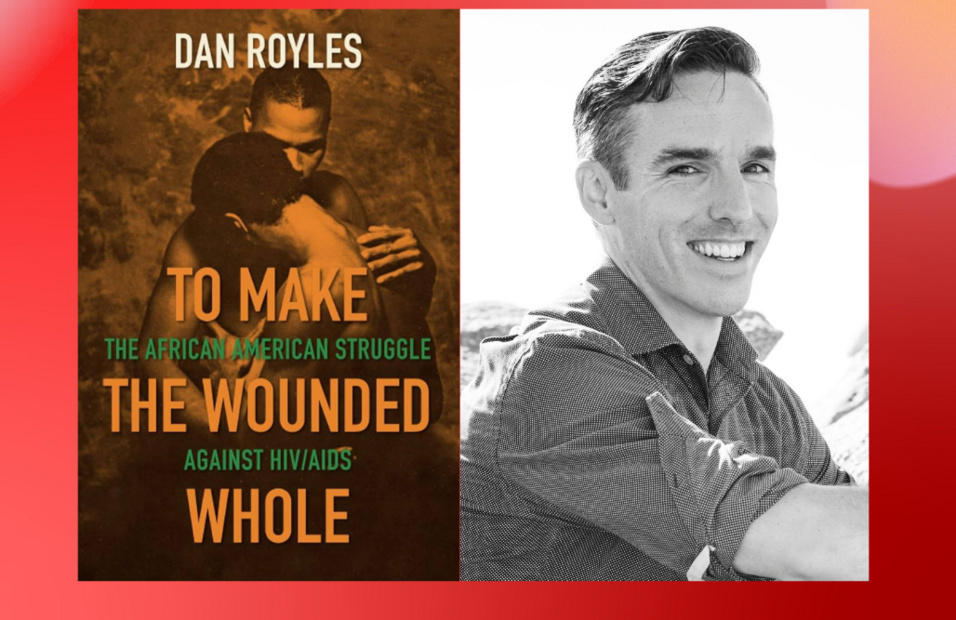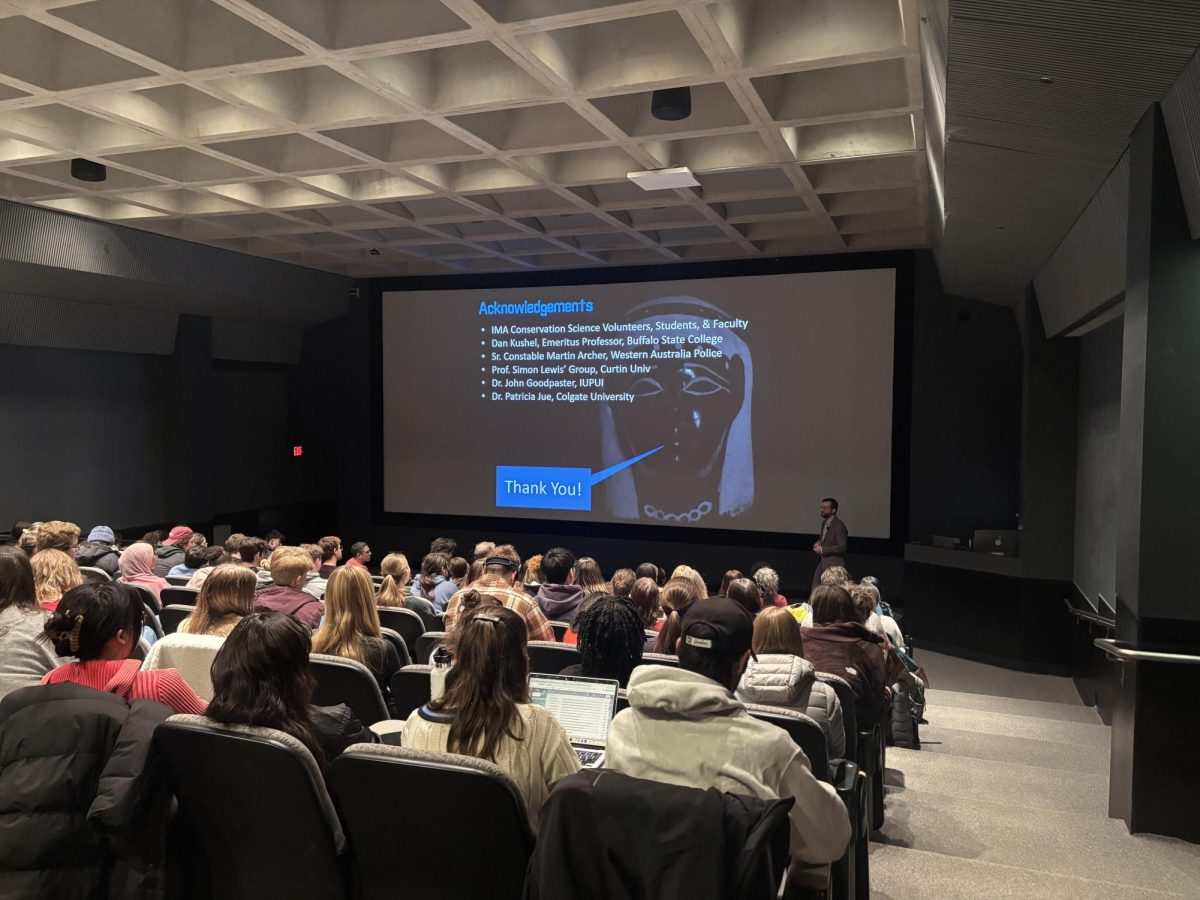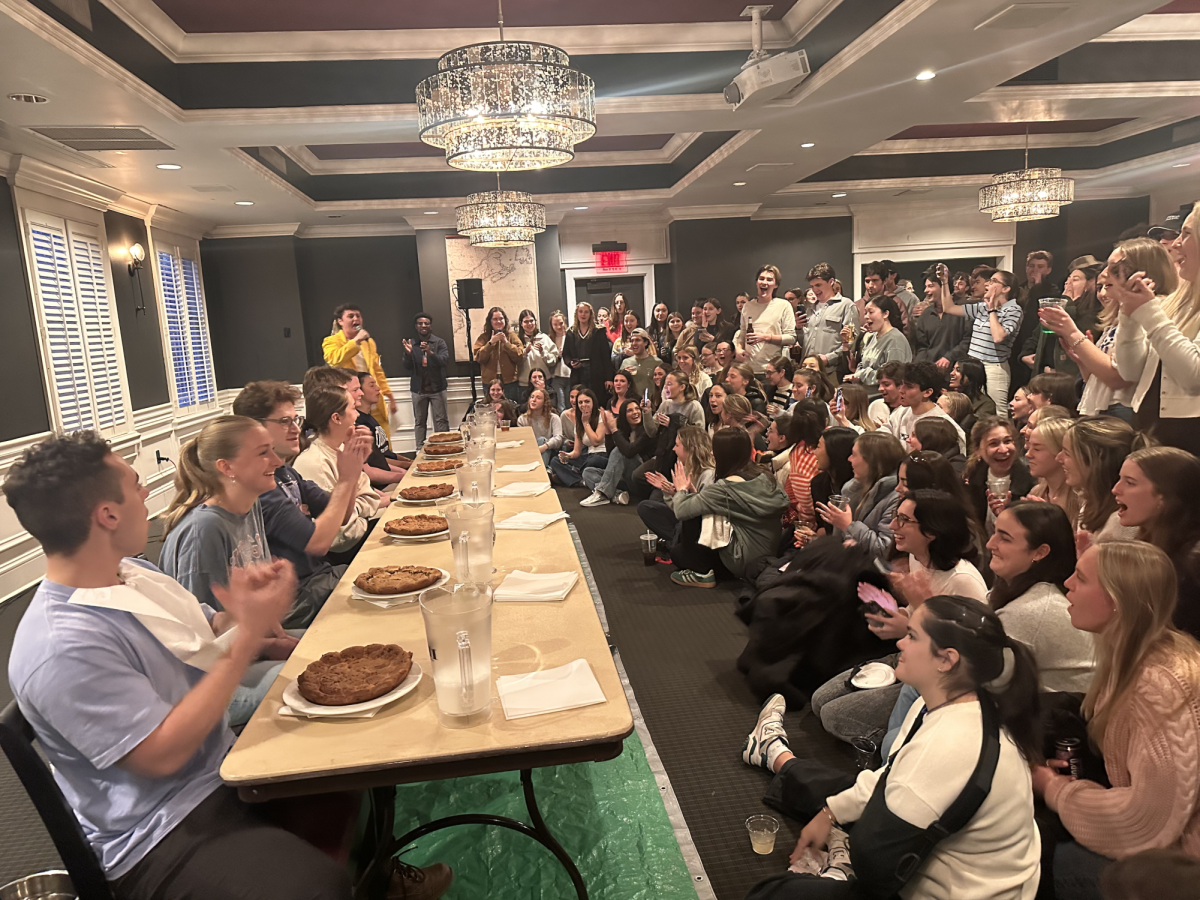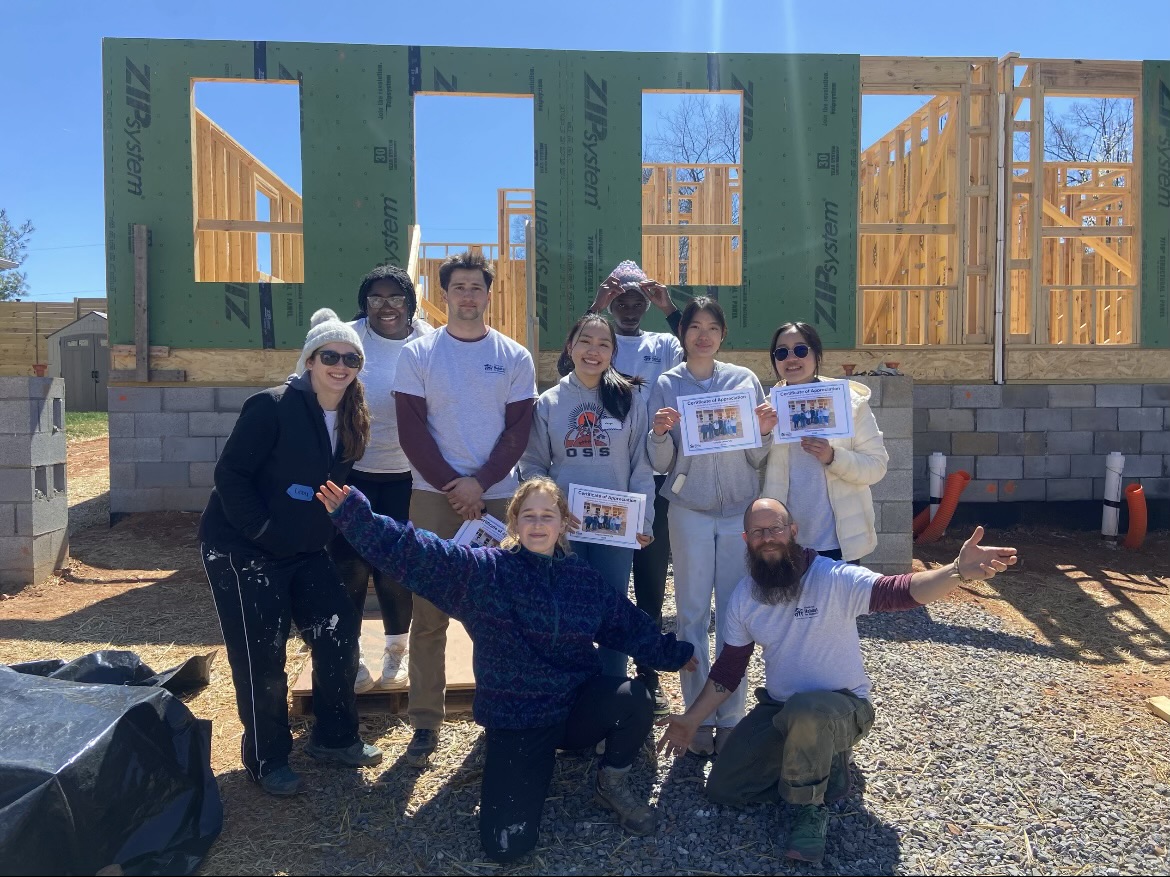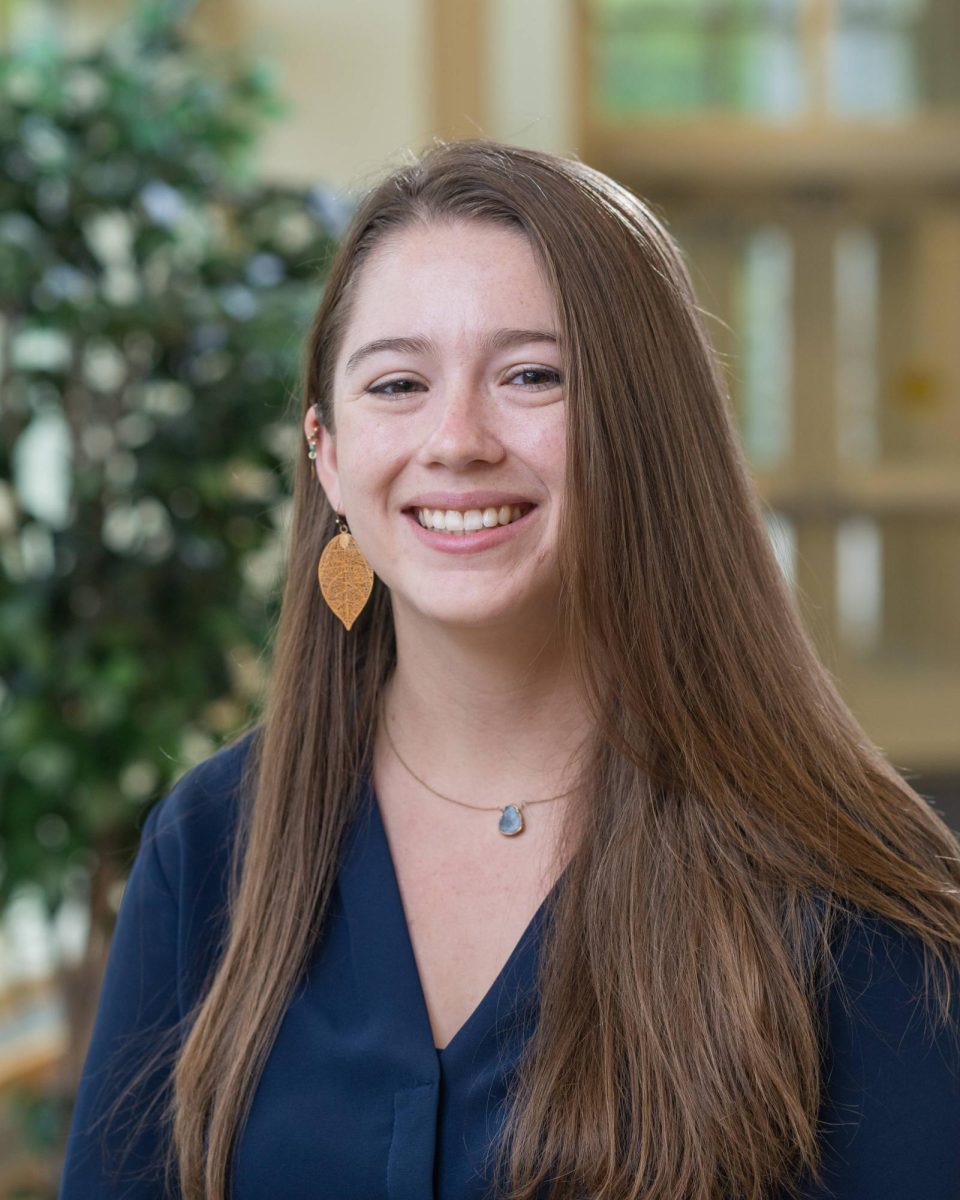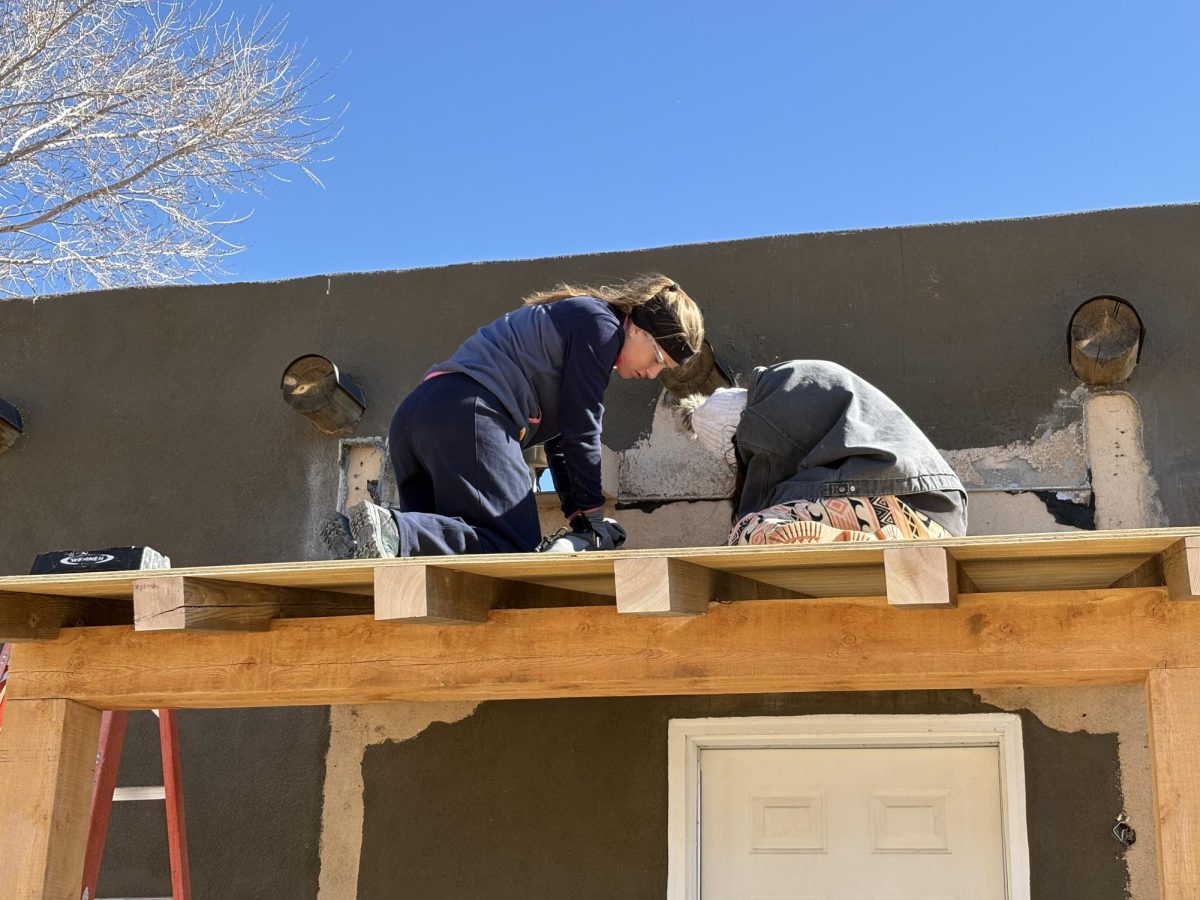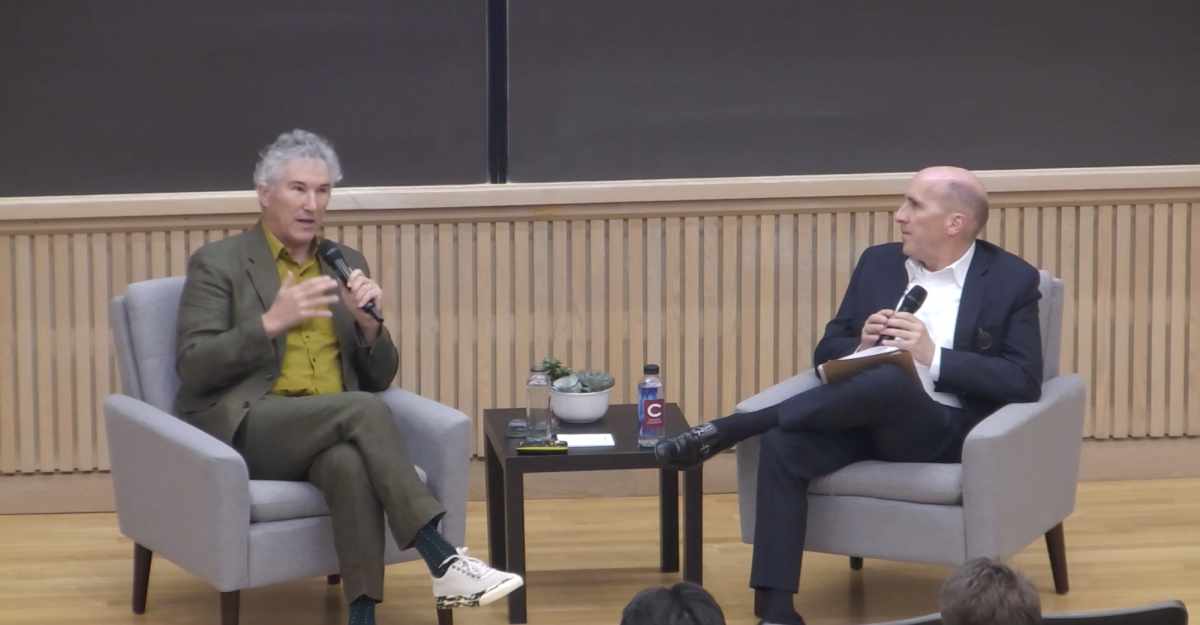On Wednesday, Dec. 4, Dr. Dan Royles presented a lecture and book-signing entitled “The AIDS Crisis is Not Over” that covered his research and the content of his recent book, “To Make the Wounded Whole: The African-American Struggle Against HIV/AIDS.” The lecture was collaboratively sponsored by University Museums, the Office of LGBTQ+ Initiatives, the department of history, the Shaw Wellness Institute, Haven, Student Health Services, the Counseling Center and the Colgate University Bookstore, with help from several community partners, Lambda, Trans* Advocacy Group and Colgate Historical Society, and was attended by students and faculty from a wide variety of departments. Many of the faculty had the pleasure of knowing Royles, who teaches at Binghamton University and is married to Darwin Rodriguez, Colgate’s Museum Operations Manager.
Royles’ talk was part of the programming for the second annual Colgate HIV/AIDS Awareness Week, which took place from Dec. 1 through Dec. 7.
Lyosha Gorshkov, the director of LGBTQ+ Initiatives at Colgate, related the importance of the week to the reduced attention that the HIV/AIDS crisis now receives.
“Students of your generation are not familiar and think it is never going to happen after COVID,” Gorshkov said. “So that’s why we started doing the HIV/AIDS Awareness Week — because of the COVID pandemic. People think it was the first pandemic ever, but what about the AIDS pandemic?”
Royles’ talk immediately focused on the fading awareness of the crisis, or as Royles called it, “the politics of memory.”
“I want to start by suggesting that memory is always already implicated in AIDS politics,” Royles said, “The practice of AIDS activism has been suffused with memory since the beginning of the epidemic, and in every way AIDS activism itself has become increasingly more prominent in our cultural consciousness in recent years, especially as a touchpoint for responses to the first election of Donald Trump and to the COVID-19 pandemic. But memory also always already implies its opposite: forgetting. While much has been remembered about the history of AIDS and of activists’ responses to the epidemic, much more has been forgotten.”
As indicated by the title of his book, Royles’ research focused on the effects of AIDS on African Americans and the responses to the epidemic by African American activists and communities. Royles’ work attempts to fill a gap left in history and cultural consciousness about HIV/AIDS that was left by the overwhelming lack of diversity in both leadership and the communities they cared for in groups such as Act Up. These groups tend to dominate the story about the AIDS epidemic, which led to the perception that exists to this day that AIDS was a “gay white man’s disease.” Each chapter throughout the book hones in on different but interconnected Black stories that have been swept under the rug by time, with sections devoted to specific activists, organizations, medical professionals and others who played crucial roles. The book also deals with why these narratives have ended up being forgotten, and ultimately works to amplify voices and stories that may have been lost.
In addition to the departments and campus partners who made this event possible, much of the organizational work was carried out by junior Oscar Brown, who is a history major and a minor in the LGBTQ+ department.
“I consider myself to be an up-and-coming queer historian, and I really find a lot of necessary value in queer histories that are not traditionally represented in, for example, the timelines you would find online,” Brown said.
More information about HIV/AIDS and sexual wellness is available to the Colgate community through the Student Health Center and at the Center for Women’s Studies in East Hall.


